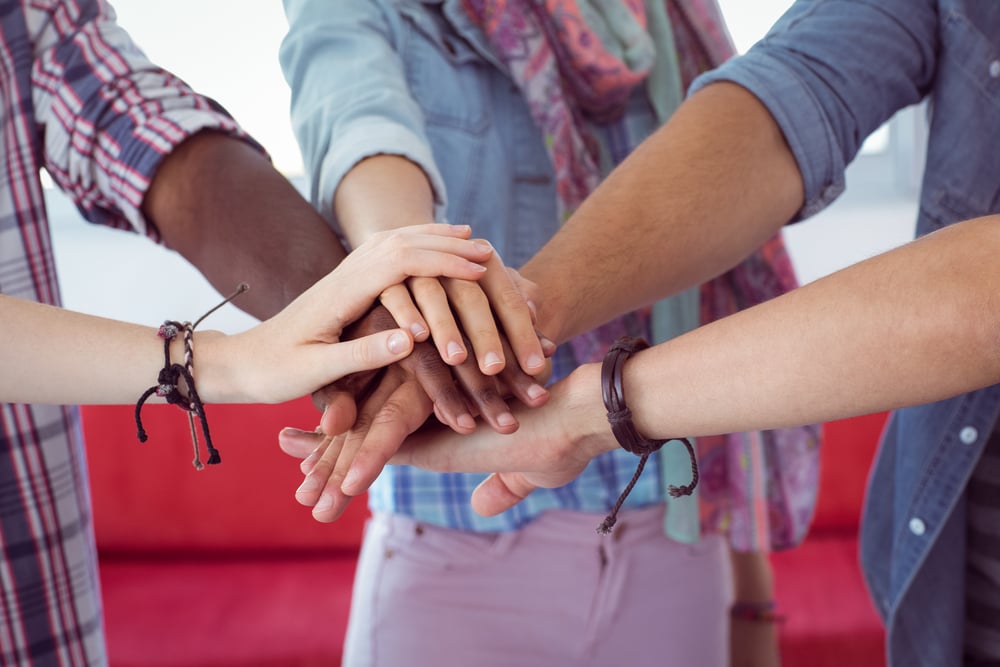Organising a Charity Event: A Complete Guide
Learn how to expertly organise your charity event with these essential steps. Plus, get valuable tips on recruiting, managing, and training...
Discover how to create and leverage an event legacy, from setting goals to building a community and finding local partners.
Events provide a unique opportunity for nonprofits, sports organisations and local communities to come together and make a lasting impact. Whether it's a fundraising gala, a fun run or a large-scale festival, events allow organisations to engage supporters, raise awareness for their cause, and bring in revenue to support their mission.
But to truly capitalise on these opportunities, nonprofits must think beyond the day of the event itself. Consider that 81% of US donors attend nonprofit fundraising events - this presents a huge opportunity to convert these attendees into lifelong supporters. And 15% of visitors go on to organise their own community events after attending one, spreading awareness organically.
With some extra planning and strategy, you can create an event legacy that extends the benefits long after the event is over.

An event legacy is the lasting, positive impact that remains after an event has concluded. It encompasses the long-term social, economic, cultural, and environmental changes sparked by the event within the local community. Specifically, event legacy can be defined across:
For nonprofits and other charitable organisations, creating an intentional event legacy is crucial for amplifying impact and achieving fundraising and engagement goals over time. Events offer a unique opportunity to directly engage supporters and promote your organisation’s mission through a meaningful experience. But the impact doesn't have to end when the event does.
Some of the key benefits of developing an event legacy include:
Events raise visibility for your cause and get more eyes on your organisation. An event legacy strategy expands that reach even further by creating educational and inspiring touchpoints before, during, and after the event. These touchpoints include social media campaigns to get attendees excited pre-event, signage and materials to share your mission on the day-of, and follow-up impact stories and calls-to-action to keep momentum going.
Events are a major revenue source for organisations, through tickets sales, sponsorships, auctions, and donations. An event legacy strategy helps convert that initial event excitement into ongoing support. Tactics like monthly giving programs and recurring donation campaigns enable organisations to establish reliable income streams long after the event concludes.
Events allow people to experience your mission firsthand by bringing supporters together. An event legacy cultivates that community energy further by providing clear opportunities for people to stay involved post-event through volunteering, recurring donations, social media groups and more.
Developing an optimised event legacy requires identifying key performance indicators upfront that you can track over time. This could include website traffic, social media reach, funds raised, or volunteer sign-ups. Collecting this benchmark data is invaluable for demonstrating your event legacy impact to stakeholders and funders.
Large events require hiring staff and volunteers to help execute everything from operations to production needs. This premade workforce created for the event provides lasting talent development and job opportunities that benefit the local community long after the event concludes.

There are several proven tactics to turn your one-time event into an ongoing movement that energises supporters over the long term.
Events should be engaging, memorable occasions that attendees want to share with others. Build in interactive elements, entertainment, social media shareability, and ways for people to meaningfully connect to create buzz during and after the event.
Keep attendees engaged long after the event concludes by collecting their contact details and sharing recaps, photos, impact stories, and calls-to-action through email, social media, and other channels. Enable them to stay involved through volunteer sign-ups, social media groups and recurring communication.
Collaborating with neighbourhood businesses, vendors, venues, and nonprofits can provide valuable local insights to boost event turnout and event legacy efforts. Having local partners invested in the event's success leads to more community awareness and participation.
When events showcase or celebrate historical, cultural, or community landmarks, it reinforces and strengthens the significance of those locations. Sites become infused with the core values of your event and organisation.
Use the energy and momentum of the event to highlight future partnership, donor, and sponsorship opportunities. Follow up quickly post-event to convert interest into ongoing support.
While creating an impactful event legacy has clear benefits, it also poses unique challenges. Careful monitoring and evaluation is key to overcoming these hurdles and optimising your legacy results over time.
Creating a meaningful legacy from an event involves navigating complex dynamics between diverse stakeholders over an extended timeframe. Some of the key challenges include:
Balancing diverse stakeholder interests: An event legacy impacts various groups like attendees, organisers, sponsors, partners, and the local community. Each have their own goals and desired outcomes that must be aligned for a cohesive event legacy. This requires upfront collaboration and communication.
Managing event legacy projects long-term: Legacy initiatives often extend months or years beyond the event itself, requiring foresight in planning. This includes allocating resources, assigning responsibilities, and preparing for staff/leadership transitions to ensure smooth ongoing management.
Measuring abstract outcomes: Qualitative legacy concepts like increased community pride and positive cultural impact can be difficult to quantify. Solid benchmarking, surveys, and indicator metrics are essential to track progress.
Accounting for external factors: External forces like the economy can impact legacy success. Isolating the event's contributions requires careful analysis.
Securing ongoing investments: Long-term legacy projects may require continued financial and stakeholder support over time. Demonstrating value through data and reporting inspires sustained engagement.
With careful planning and the rights tools, including the Rosterfy platform, you can turn your event legacy vision into an actionable strategy. Here are some tips:
Set specific, measurable goals and KPIs: Align stakeholders on quantitative goals that help achieve your overarching event legacy vision. This could include social media impressions, website hits, new email list sign-ups, donations raised or other metrics.
Map out legacy initiatives pre-event: Brainstorm creative event legacy projects across marketing, fundraising and community engagement. Develop comprehensive plans for each initiative including timelines, required resources and parties responsible.
Collect participant feedback: Surveys before and after the event gauge baseline perceptions versus impact on attendees. This could cover brand awareness, values alignment, event experience and likelihood to recommend.
Monitor progress with integrated tracking: Leverage tools to automatically track website analytics, social media engagement, donations, sales, and other data sources in one dashboard. This can provide clear insight into event legacy key performance indicators.
Create customised reports for stakeholders: Compile events legacy data into user-friendly reports that resonate with each stakeholder group. This demonstrates the lasting value created and progress towards goals.
Learn and refine annually: Analyse results each year to find opportunities to adjust and optimise your event legacy strategy.
Creating an event legacy that drives meaningful, long-term change requires thorough planning and strategic follow-through. You need to align stakeholders, set clear goals, closely monitor progress, and optimise based on data and insights.
But juggling all these moving parts can be challenging without the right technology and expertise. Rosterfy offers an automated system to help master event legacy creation.
With Rosterfy, you can:
By leveraging Rosterfy's end-to-end event software, advanced reporting, and expert guidance, you can bring your boldest event legacy visions to life. So if you're ready to create an event legacy that fulfills your mission for years to come, book a call with Rosterfy today.
Rosterfy is used by nonprofits, charities, sporting federations, and more to better manage their volunteer programs by improving how they can recruit, screen, train and retain volunteers.
Our market leading technology helps you create an engaging experience throughout the whole lifecycle of your volunteer journey.
Book a call today.
Read more helpful articles on our blog:
Learn how to expertly organise your charity event with these essential steps. Plus, get valuable tips on recruiting, managing, and training...
Take a look at what it takes to be a homeless shelter volunteer, including cooking and serving food, preparing rooms and providing conversation with...
Looking for activities to do with your kids? Why not consider volunteering? This blog outlines some great volunteer opportunities families can do...
Join thousands of volunteer managers who receive regular updates on practical insights, research-driven white papers, industry trends, case studies, and Rosterfy feature releases - all designed to make managing volunteers easier.